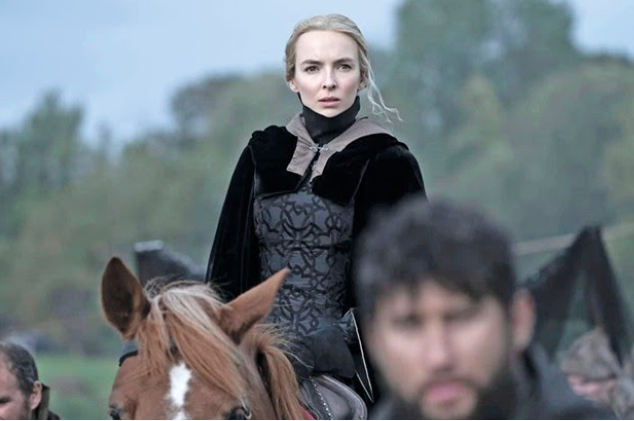Defne Onal managing editor
Though Ridley Scott’s The Last Duel is about a rape committed in 14th-century France, there is a striking implication that memory is uncertain and subjective. The film is separated, quite brilliantly, into three character perspectives that deal with the same plot: that of knight Jean de Carrouges (Matt Damon), squire Jacques Le Gris (Adam Driver) and Marguerite de Carrouges (Jodie Comer).
Marguerite’s rape is followed by Charles VI’s court’s disbelief of what occurred and victim-shaming. The survivor goes under an interrogation consisting of questions such as, “Did you feel pleasure during the act?” meaning that if she did feel pleasure according to the court, it wouldn’t constitute as rape. During the ordeal, her husband’s honor and standing are tested as well. As a result, Jean challenges Jacques to the last historical trial-by-combat in France, which could either end in Marguerite’s redemption or her being burned alive.
Jacques calls out Marguerite, like all women, to be a tease. Depending on who’s telling the story, Jean is either a noble knight or a cold-hearted brute who only wants Marguerite for an heir. Jacques is either an intellectual that understands Marguerite’s love for books or a devil’s advocate whispering lies to Count Pierre d’Alençon’s, played by Ben Affleck, ear in exchange for capital. Overall, he’s not a likable character because he indulges in excessive hedonism and seems to think himself superior because he’s more knowledgeable than other characters.
Using the two men’s warped memories, Marguerite’s own traumatizing experience and the campaign of medieval paranoia around her, Scott presents a phenomenal depiction of what personal memory means.
Unfortunately, Scott gives little historical depth to the standing of rape survivors in noble society. The movie only scratches the surface of 14th-century gender justice, not focusing broadly on the issue but only on Marguerite’s experience. The only hint that rape was a pervasive issue in upper-class society is when Marguerite’s mother-in-law Nicole de Carrouges, played by Harriet Walter, admits that she too had been raped.
There are several more instances throughout the film where memory is depicted to be error-prone and faulty. I understood the genius of Scott when I, just like a member of Charles VI’s court, ironically adopted a habit of questioning, doubting, and ultimately, surrendering to the unpredictability of history.
Highlights rates this show: 4/5
Warning: This movie is rated R. Highlights does not endorse crude indecent language (L), explicit sexual activity (S), or graphic violence (V).































